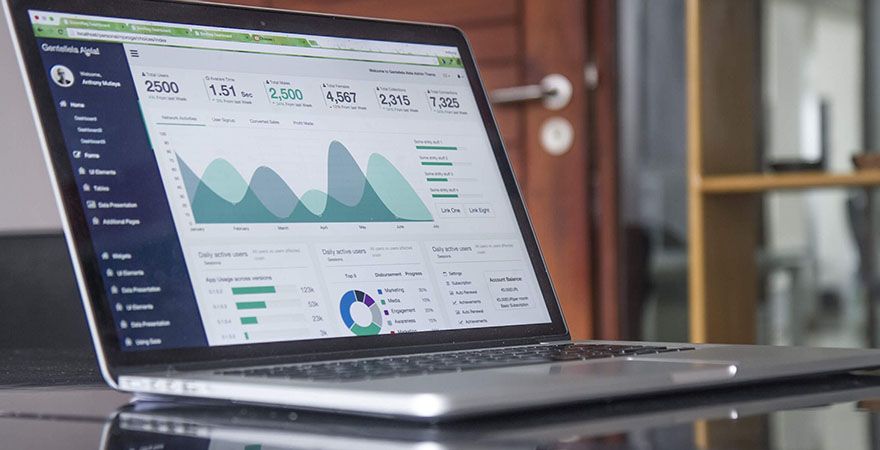B2B Companies: Meaning, Characteristics And Examples

If you intend to venture into the B2B market and set up your own business in particular, you already know what challenges you can face and what opportunities are available to you. This term summarizes the relationships of companies that sell to businesses, rather than directly serving end consumers.
These organizations have continued to grow in France, although they do not have the same visibility as the brands that populate our imagination in B2C. If you are already wondering about acronyms, know that there are many others: B2B2C, C2C, B2E, B2G, etc.
What is a B2B (Business to Business) company?
A B2B company, or Business to Business, is an organization that has clients from other organizations. The very expression “business to business” already specifies the type of transaction we are talking about, between client companies and suppliers. This market of companies that sell and provide services to businesses is also called an industrial or organizational market.
Two examples of common business-to-business relationships in France are companies that supply raw materials to industries for product development and service providers that deal with operational issues in outsourcing contracts. Another classic model is the relationship between wholesale and retail trade, although the emergence of “atacarejos” changes this configuration.
In e-commerce, B2B businesses focus on selling supplies to other businesses. Even e-commerce is one of the major trends in B2B today, with great potential for growth. According to the Business-to-Business Online (B2BOL) study, carried out by the consulting firm E-Consulting and published in E-commerce News, the Brazilian business-to-business e-commerce market reached R $ 1.81 trillion in 2017 The main expanding categories are the consumer goods industry, government and public bodies, retail, chemicals and petrochemicals, telecommunications and media.
Differences between B2B x B2C
There are marked differences between B2B (Business to Business) and B2C (Business to Consumer) companies. These are the two most common business models, although there are other more comprehensive relationships such as B2E (Business to Everyone) and B2G (Business to Government).
Let’s understand the main aspects of both.
Target purchasing audience
What characterizes a B2B or B2C relationship is the person who buys the kava wholesale (product or service). In B2B, businesses buy from businesses. In B2C, consumers buy from businesses.
Simple, eh?
That’s basically the difference, although some companies can serve both types of audiences. What really influences these companies is the behavioral distinction between organizational buyers and consumers, as we will see later.
Time before purchase
The buying time of corporate clients is much longer than that of an individual, because it involves more complex decisions. Just think of the number of aspects that go into choosing a supplier for a project, from technical issues related to products or services to cash flow adequacy. It goes without saying that closing one business to another takes much longer.
Number of people involved
The process of buying a business can involve a large number of people, whereas B2C relationships depend on only one buyer. In personal purchases, the customer who begins the process is the same as the customer who completes it. In business purchasing, on the other hand, there can be many processes and decision makers until the transaction takes place.
Recurrence of purchase
Another essential factor in business-to-business commerce is the recurrence of purchases, as there is extensive negotiation which creates a strong partnership between the companies. It is common for trade relations between two companies to extend over several years, especially when they relate to capital goods. The end consumer can easily change brands of laptop computers, for example, but not the corporate client. It goes through a more complex and lengthy process, in most cases.
Sale size
Obviously, organizations’ purchases are much larger in quantity than personal purchases. This large volume of exchanges brings advantages to the business-to-business relationship, as it increases the negotiating power to obtain better conditions of price, duration and service.
How does a B2B business work?
B2B companies work the same way as B2C companies or any other business model: they create value for customers with offers that meet their needs. The only difference is that, in this case, the customers are other companies, which have their peculiarities and requirements. Just as businesses challenge end consumers, B2B organizations seek to serve their corporate customers better than the competition.
Often times, they have to have a very close and strong relationship with buyers, who are responsible for a large part of their sales. One of the main challenges for B2B companies is to overcome a phenomenon called “commodification”. When this happens, customers begin to think of the company’s products as “goods” – that is, homogeneous items that are no different from other similar items on the market.
This massification of products is very detrimental to the company, because it destroys its competitive advantage in the B2B market and can be easily replaced in the eyes of client companies. To avoid this problem, we should continually invest in innovation and do a good job in B2B marketing, which we are going to deepen.
Main characteristics of a B2B business
Large sales volume
In general, the sales volume in the B2B sector is huge, as it covers the large-scale supply of goods and services to other companies. In many areas, the B2B market is highly concentrated, with each customer being responsible for acquiring a large quantity of products. Thus, the number of these transactions is much more robust than in B2C.
Constant risk management
The risks involved in business-to-business affairs are much greater than in business-to-consumer relationships. Indeed, corporate buying decisions involve shareholders ‘and owners’ money, and any mistakes can lead to untold losses. For example, a purchase of raw material with incorrect specifications or inconsistencies can compromise the entire production of the company, which must ensure the standardization of its products. In addition, the financial risks associated with the trade balance, political risks with taxes and environmental risks.
High degree of technical requirement
In B2B businesses, there is no room for errors and issues related to the quality of products or services. Indeed, the technical specifications of commercial relations with other companies are rigorous and are the subject of numerous audit and control processes. Any mistake can be fatal for the customer’s production and also for the image of the company in the market, where it is difficult to regain confidence after a crisis.
Branding e-Marketing diferenciados
In pursuit of competitive, rare and good relationships, B2B companies need their own branding and marketing strategies to position themselves properly and beat the competition. For starters, brand management needs to be particularly attentive to flawless change that conveys the right values to the organization’s clients.
After all, customers are also concerned about the brands they will be associated with in the B2B marketplace, prioritizing the good image and reliability of their suppliers.
What is business-to-business marketing?
Business-to-business marketing, as mentioned above, is all about business-to-business business relationships and their peculiarities. The fundamental aspect of B2B marketing is that buying decisions are not made primarily on the basis of emotional aspects, as in the B2C world.
On the contrary, the purchasing process of companies is guided by rational factors, covering the technical specifications, cost-benefit ratio and standard procedures of the organization. As a result, business-to-business actions take much longer to take effect, as it takes months to turn them into a purchase.
Indeed, clients of organizations must educate themselves about the various requirements and analyze contracts before making a decision, even if they have been affected by a highly persuasive campaign. In general, the basis of B2B marketing is the presentation of information on technical impact and valuable market research.
Types of B2B companies
B2B companies can be classified according to their business model and end activity. Discover some of the main players.
Transformation
B2B processors sell their products to other industries. In general, they are suppliers of raw materials for the manufacture of the most diverse products. Resale is the basic model of the distribution chain, in which companies sell to distributors, resellers and wholesalers in general. Business-to-business reselling is also done from distributors to retailers, either at the point of sale or through direct sales channels.
E-commerce
Business-to-business e-commerce businesses deserve a separate category due to the variety of possible business models. Besides the traditional e-commerce of products and inputs for other businesses, online B2B also covers more complex relationships. Within the framework of B2B2C (Business to Business to Consumer), for example, two companies conclude a deal aimed at selling to the end customer. This happens in markets, where the trader trades his product through an outsourced sales channel, seeking to attract the end consumer.
There are also B2E (Business to Employee), which are online platforms for direct sales to company employees, with special conditions for purchases.
Examples of B2B companies in Brazil
The B2B market in Brazil is booming and has several representative companies. Discover some of the best known.
Benefits of VR
AVR Beneficious is one of the most traditional companies in the field of employee benefits solutions. The company’s Meal Valley covers more than 360,000 licensed establishments and offers attractive business conditions for negotiating with companies from all segments. The brand is known for carrying out direct marketing actions with its corporate clients, offering differentiated experiences to corporate decision-makers.
Print is an online B2B printing company with high quality digital and offset printing, which won the award for the best B2B Company from the founders of Brazil. The company offers personalized service to businesses, with special conditions for orders over R $ 5,000 and businesses with more than 50 employees. For organizations with more than 10 units or franchises, the prices are even more attractive.
Intel post
Intel post is a B2B a startup which has distinguished itself by its cutting-edge platform in freight management. Your TMS shipper integrates shippers (e-commerce, retailers and logistics operators) and carriers, providing a complete view of deliveries and cost reduction.
Today, the company already works with more than 500 shippers in segments such as apparel, online retail, IT, books and sports.
B2Brazil
AB2Brazil is the country’s largest business-to-business marketplace, bringing together Brazilian and international companies. The platform allows companies to connect and do business in the most diverse segments. On the site, it is possible to buy and sell products with ease, with a premium registration option to increase visibility and sales opportunities.
Examples of B2B coaching companies
Mound do coaching also has its B2B companies, which provide services to other companies in various segments. Knowing that any organization can greatly benefit from coaching methodologies, nothing is more natural than having B2B services in this area.
Scooching, for example, is a leading company and a benchmark in training and effective solutions that serves more than three thousand companies. The organization has around 300 specialist professionals, including employees, associates and trainers spread across Brazil.
Scooching’s breakthroughs in business are designed to increase profitability, boost productivity, multiply sales and develop teams to reach their maximum potential. There are tailor-made training courses for entrepreneurs, teams, managers, and sales and human resources departments.
Companies such as PepsiCo, Amber, HSBC, Nokia and Coca-Cola turn to Scooching to improve their bottom line and ensure exceptional performance. In addition, the company has trained over 35,000 coaches through its exclusive internationally recognized courses.
Conclusion
If you did not yet know the B2B universe, you now have all the knowledge you need to contextualize this business model.
A simple reason explains the low visibility of these companies: their marketing actions are exclusively focused on the B2B market, except when it comes to B2B2C relationships.
Most of these businesses communicate through direct marketing strategies, corporate events, and fully segmented digital marketing campaigns. So it’s rare to hear about B2B companies, and our entire brand directory is deeply based on B2C companies. But on the other hand, the turnover of the B2B marketplace is immense, and trillions are moved behind the scenes every year.
SHARE
Stay in touch
To be updated with all the latest news, offers and special announcements.







